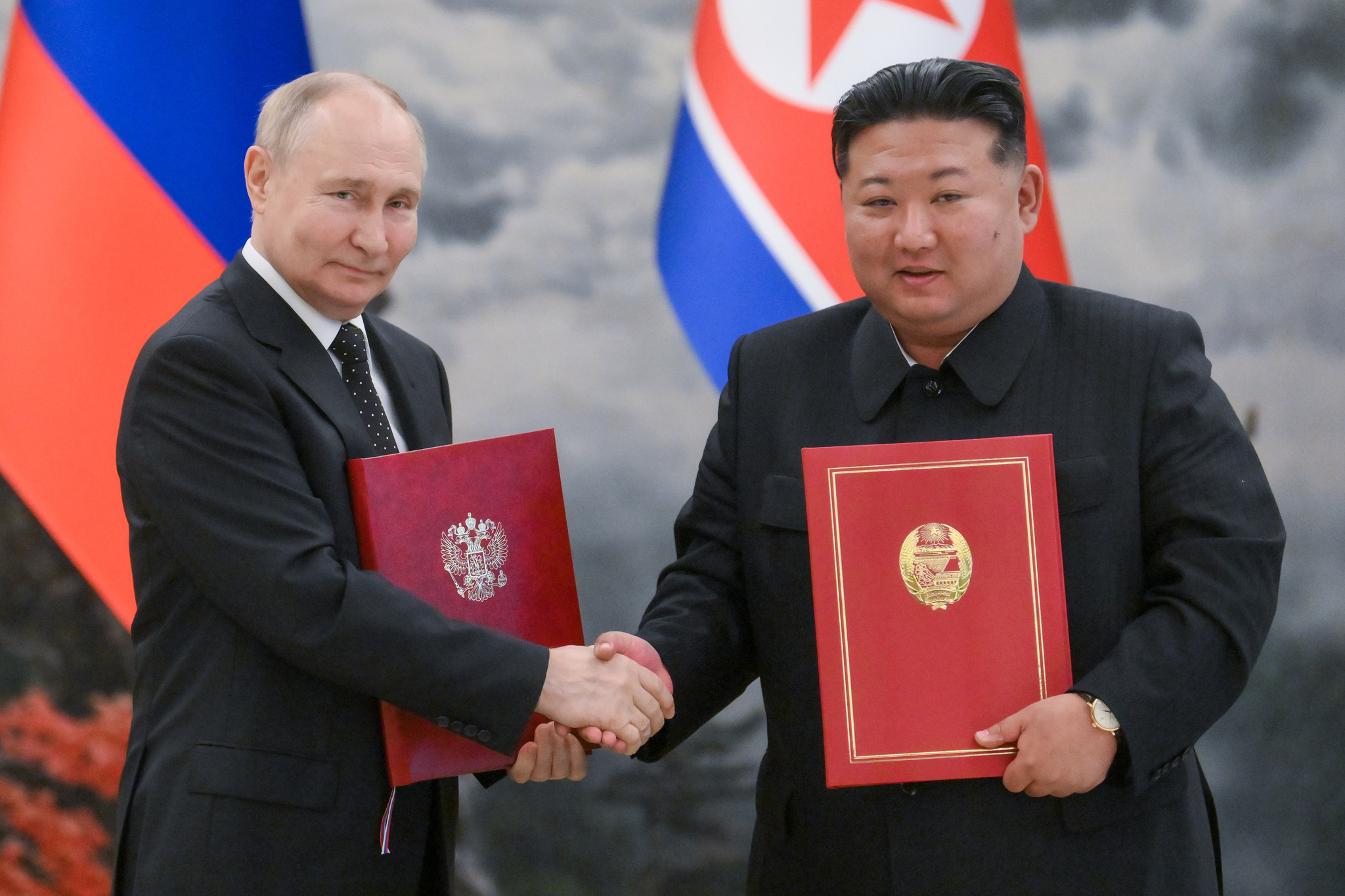Observers believe both countries aim to take advantage of a perceived leadership void during the U.S. presidential transition to push their immediate objectives on the battlefield.

The Democratic People’s Republic of Korea (DPRK) is the official name for North Korea. According to the report, the North Korean head of state signed the decree the previous day.
Russian President Vladimir Putin signed the treaty on Nov. 9 after the lower house of Russia’s parliament ratified it. The treaty stipulates it “will take effect from the day when both sides exchanged the ratification instruments,” with sources indicating that all necessary steps to finalize the treaty have now been completed.
The ratification comes shortly after a diplomatic visit by North Korean Foreign Minister Choe Son-hui to Russia, where she met with Putin on Nov. 4. Yang Moo-jin, president of the University of North Korean Studies, speculated that Choe’s discussions with Putin “likely clarified the terms of North Korea’s military involvement and resulted in assurances on transfers for advanced weapons technology and possibly a future visit by Kim Jong-un to Russia,” adding that Kim was likely pleased with Choe’s diplomatic achievements.
For the treaty to take full effect, the leaders must formally exchange ratification documents, which could occur soon, given the heightened anticipation of a military clash in Kursk.
“We are monitoring closely to see if this treaty will be formally linked to North Korea’s deployment in Ukraine once the ratification documents are exchanged,” a South Korean Ministry of Unification official told reporters Tuesday.
Article 4 of the treaty provides North Korea with a legal framework to support Russia militarily in Ukraine. It mandates mutual military assistance in case of an armed invasion, stating, “In case any one of the two sides is put in a state of war by an armed invasion from an individual state or several states, the other side shall provide military and other assistance with all means in its possession without delay in accordance with Article 51 of the UN Charter and the laws of the DPRK and the Russian Federation.”
![This image captured from the Center for Strategic Communication and Information Security of Ukraine shows soldiers appearing to be North Koreans at a military base in Russia. [SCREEN CAPTURE]](https://koreajoongangdaily.joins.com/data/photo/2024/11/12/5cd55d67-1ff0-4e4f-88c8-5644a58efad0.jpg)
The development coincides with a report by Ukrainian President Volodymyr Zelensky, who said through Telegram on Monday that Russia has mobilized “nearly 50,000 troops” in the Kursk region.
Analysts suggest that Russia and North Korea are capitalizing on the U.S. administration change and maximizing the impact of North Korea’s military presence, with significant changes in the U.S. foreign policy expected under President-elect Donald Trump.
“North Korea needs to institutionalize the treaty and solidify the impact of troop deployment before any shifts in U.S. policy on Ukraine that may occur under Trump,” said Hong Min, a senior researcher at the Korea Institute for National Unification. “Trump’s quick appointments for diplomatic and security positions suggest a rapid consolidation of U.S. policy toward Ukraine. For Russia, the treaty ratification is essential to take back the Kursk region and procure stable support from North Korean forces before any negotiation phase begins.”
South Korean officials are seeking to leverage Beijing’s potential discomfort with the growing Pyongyang-Moscow partnership.
“China appears uncomfortable with the alliance, though it remains uncertain how Beijing might respond,” a high-ranking South Korean foreign ministry official noted Tuesday. “We should continue to engage China, as they may prefer to maintain some distance from the North Korea-Russia axis.”
However, Chinese Foreign Ministry spokesperson Lin Jian downplayed the concerns.
“North Korea and Russia are two independent sovereign nations, and how they choose to develop their bilateral relationship is their own matter,” Lin said during a press briefing Tuesday.
BY SEO JI-EUN [seo.jieun1@joongang.co.kr]





